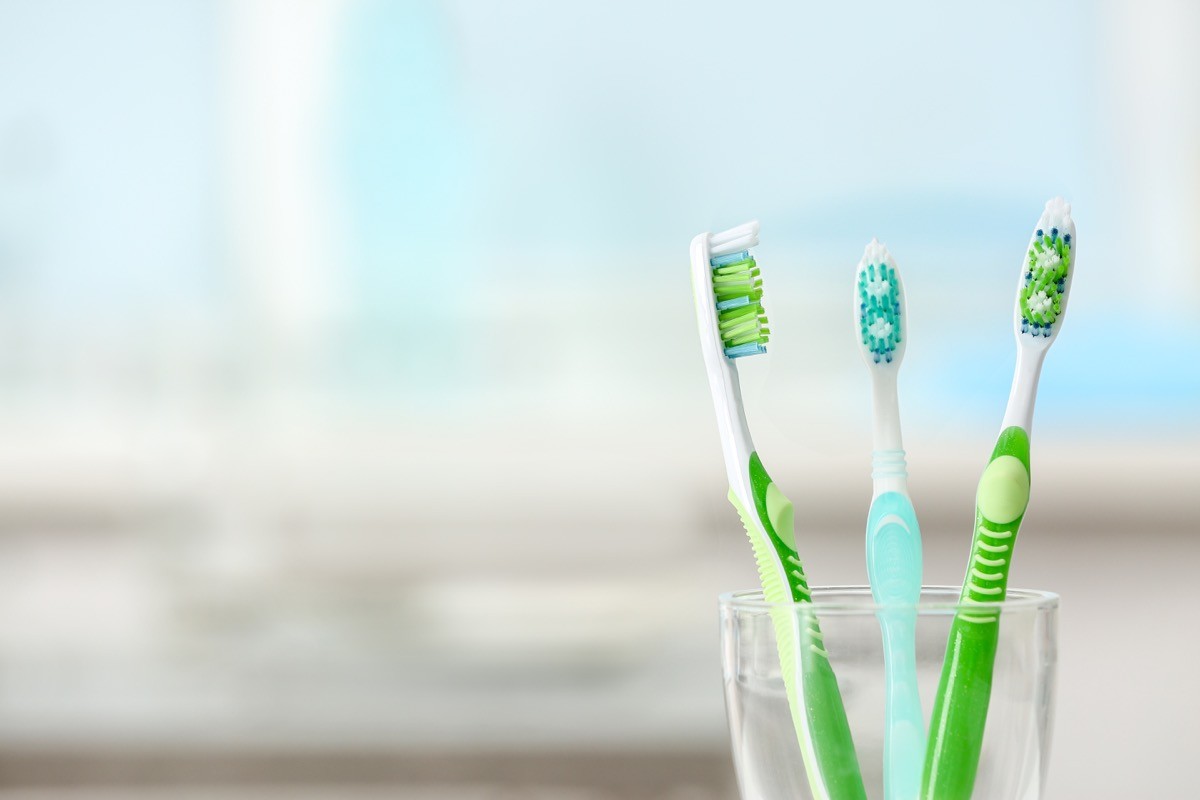New Study Reveals Hidden Viruses in Your Bathroom That Will Change How You See It Forever

Did you know your bathroom is home to a variety of viruses that make up their own ecosystem? A new study led by Northwestern University reveals everyday objects such as toothbrushes are covered in newly-discovered viruses. The study was published in the October 9 issue of Frontiers in Microbiomes. “The number of viruses that we found is absolutely wild,” Erica M. Hartmann, PhD, who led the study, told Phys.org. “We found many viruses that we know very little about and many others that we have never seen before. It’s amazing how much untapped biodiversity is all around us. And you don’t even have to go far to find it; it’s right under our noses.” Here’s what you need to know about these viruses.
RELATED: Virus Expert Urges COVID Vigilance.
”Operation Pottymouth”

Hartmann chose the bathroom as the ideal place to study microbes. “This project started as a curiosity,” Hartmann said. “We wanted to know what microbes are living in our homes. If you think about indoor environments, surfaces like tables and walls are really difficult for microbes to live on. Microbes prefer environments with water. And where is there water? Inside our showerheads and on our toothbrushes.”
600 Viruses Found

Hartmann’s team used DNA sequencing to study the microbes found on toothbrushes and inside showerheads, and found 600 viruses, all different from the other. “We saw basically no overlap in virus types between showerheads and toothbrushes,” Hartmann said. “We also saw very little overlap between any two samples at all. Each showerhead and each toothbrush is like its own little island. It just underscores the incredible diversity of viruses out there.”
Exciting Developments

Hartmann’s findings could be instrumental in fighting specific diseases, thanks to the discovery of mycobacteriophage, which infects mycobacteria. Mycobacteria is a germ linked to tuberculosis and leprosy. “We could envision taking these mycobacteriophage and using them as a way to clean pathogens out of your plumbing system,” Hartmann said. “We want to look at all the functions these viruses might have and figure out how we can use them.”
RELATED: 7 Things Dirtier Than Your Toilet.
Don’t Panic

No one wants to hear their toothbrushes and shower heads are teeming with never-before-seen viruses, but Hartman says to embrace our invisible companions. “Microbes are everywhere, and the vast majority of them will not make us sick,” she said. “The more you attack them with disinfectants, the more they are likely to develop resistance or become more difficult to treat. We should all just embrace them.”
What’s Dirtier Than a Bathroom?

Your cell phone is likely to have 10 times more bacteria than a toilet seat, according to experts. “Because people are always carrying their cell phones even in situations where they would normally wash their hands before doing anything, cell phones do tend to get pretty gross,” says IHPI member Emily Martin, PhD, MPH, assistant professor of epidemiology at U-M’s School of Public Health. “Taking a cell phone into the bathroom and then leaving with it is kind of like going in, not washing your hands and then coming back out. It’s the same level of concern.”